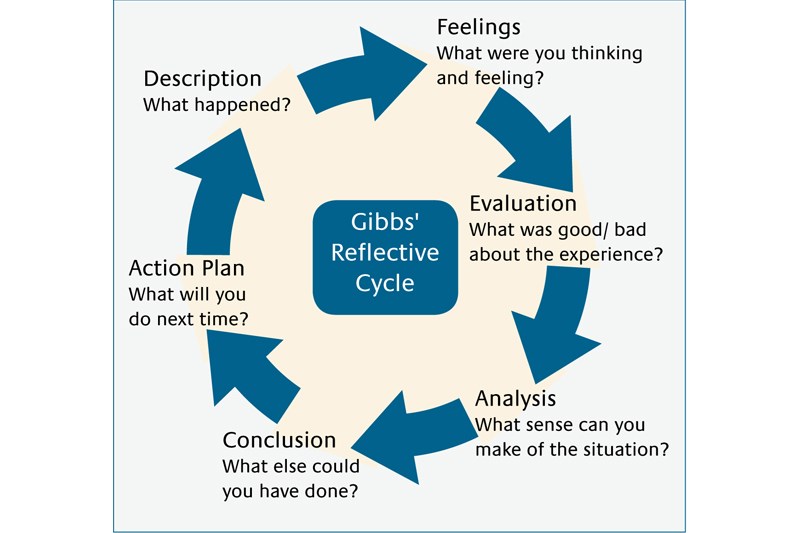Reflective practise as a method for dental nurses to learn
Reflective practise as a method for dental nurses to learn
 Reflective practise is a procedure that can aid in the improvement of patient care, the direction of learning, and the influence of professional development. This article gives a basic overview of reflective practise, explaining what it is and how, when, and why it should be employed.
Reflection is the act of evaluating or considering something. According to Rughani et al. (2003), reflection is a "key component" of a dental professional's development. The General Dental Council (GDC) encourages registrants to assess their knowledge, abilities, and performance in order to identify their strengths and deficiencies (GDC, 2005). But, if we do nothing else after reflecting on our knowledge, abilities, and performance, what do we gain other than knowing what we can do well or poorly?
This article intends to assist dental nurses in strengthening their reflective abilities and utilising them to improve their knowledge, skills, and performance in order to create greater standards for patients, their practise, and personal development.
What exactly is reflective practise?
Reflective practise is a professional principle that encourages a cycle of thinking about ourselves and our experiences, learning from them, and, probably most significantly, acting to improve our knowledge, abilities, and performance (Jasper, 2006). It is a skill that requires time and practise in order to engage with and profit from.
Here's an example of reflection without learning or action:
A dental nurse finds she was inadequate, overwhelmed, and lacked the courage to do CPR after reflecting on a recent medical emergency. However, because her necessary yearly update is not due for another six months, she does not believe she needs to take any immediate action.
In this case, the dental nurse spotted a flaw but chose to do nothing about it but wait. She is not accepting responsibility for her knowledge, skills, or performance, and as a result, she may endanger her patients and colleagues. Because taking action is part of the reflective process, applying a reflective framework or model to this case could result in a different conclusion.
Reflective practise is a procedure that can aid in the improvement of patient care, the direction of learning, and the influence of professional development. This article gives a basic overview of reflective practise, explaining what it is and how, when, and why it should be employed.
Reflection is the act of evaluating or considering something. According to Rughani et al. (2003), reflection is a "key component" of a dental professional's development. The General Dental Council (GDC) encourages registrants to assess their knowledge, abilities, and performance in order to identify their strengths and deficiencies (GDC, 2005). But, if we do nothing else after reflecting on our knowledge, abilities, and performance, what do we gain other than knowing what we can do well or poorly?
This article intends to assist dental nurses in strengthening their reflective abilities and utilising them to improve their knowledge, skills, and performance in order to create greater standards for patients, their practise, and personal development.
What exactly is reflective practise?
Reflective practise is a professional principle that encourages a cycle of thinking about ourselves and our experiences, learning from them, and, probably most significantly, acting to improve our knowledge, abilities, and performance (Jasper, 2006). It is a skill that requires time and practise in order to engage with and profit from.
Here's an example of reflection without learning or action:
A dental nurse finds she was inadequate, overwhelmed, and lacked the courage to do CPR after reflecting on a recent medical emergency. However, because her necessary yearly update is not due for another six months, she does not believe she needs to take any immediate action.
In this case, the dental nurse spotted a flaw but chose to do nothing about it but wait. She is not accepting responsibility for her knowledge, skills, or performance, and as a result, she may endanger her patients and colleagues. Because taking action is part of the reflective process, applying a reflective framework or model to this case could result in a different conclusion.
Order Now